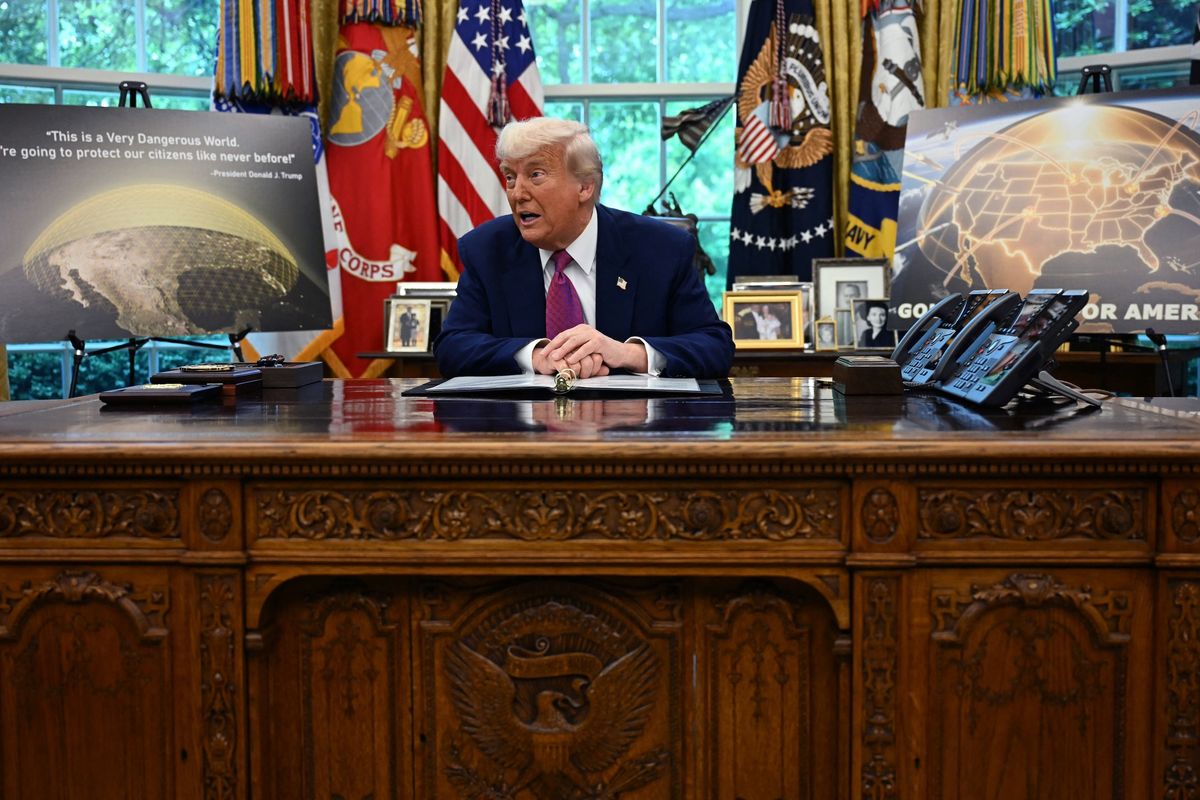OPINION — It’s time for the House or Senate Armed Services Committees to take a close look at U.S. Special Operations Forces (SOF) and hold public hearings.
Although, I must say, any serious oversight of anything done by the House or Senate will be affected by political party partisanship, which has reached an extreme level under the Trump administration and in this presidential election year will be seen more as being either pro or anti President Trump.
In fact, Trump’s repeated interventions in the case of Navy SEAL Eddie Gallagher and two other war crime cases involving SOF personnel over the past year should be part of any study along with his October 12, 2019 tweet in which he said, “We train our boys to be killing machines, then prosecute them when they kill!”
In former times, elements of the media could do it, but if reporters turn up with negative information, critics will term it “fake news” and part of the public will ignore whatever facts are presented.
On January 23, 2020, U.S. Special Operations Command (SOCOM) released what it titled a “Comprehensive Review” of SOF, undertaken the report said, “After several incidents of misconduct and unethical behavior threatened public trust and caused leaders to question special operations forces (SOF) culture and ethics.”
It was the fourth such internal SOCOM study since 2011.
SOCOM’s internal June 2011, Preservation of Force and Family (POTFF) study was put together to look at the pressures experienced by SOF and their families after almost ten years of constant fighting against violent extremist organizations in various parts of the world.
It found significant and growing demands for a “mission accomplishment” culture, a lack of predictability, and the “cumulative effect on the force,” where there was a competitive inability to say “no,” and a record of operating at “max effort and capacity.”
A 2018 Congressionally-ordered study was undertaken after SOF forces were found to be involved in sexual misconduct, illicit drug use, accountability, and unauthorized media releases. Later that year there were news reports of SOF forces involved in alleged physical abuse, drug use, and deaths of detainees and a fellow service member.
In December 2018, SOCOM Commander Gen. Tony Thomas said, “A survey of allegations of serious misconduct across our formations over the last year indicate that SOCOM faces a deeper challenge of a disordered view of the team and the individual in our SOF culture.”
As a result, additional studies were begun February in 2019, which included a 90-day, additional ethics training period. No systemic misconduct issues emerged, but improved training on decision making was recommended.
This latest study was ordered in August 2019, by then head of SOCOM, Gen. Richard Clarke after a SEAL Team 7 platoon was sent home in July for a drinking party and reports that SEAL Team 10 was under investigation for cocaine use, and Gallagher was found not guilty of the most serious charges against him. Clarke said at the time, “Recent incidents have called our ethics and culture into question and threaten the trust placed in us.”
The newest SOCOM study raises serious questions about the SOF culture, although much of that is buried in bureaucratic military language.
Among team leaders, there is a desire for multiple counterterrorism missions (kick down doors, exchange fire) because they lead to medals and promotions. However, that is a translation from what the report actually said which was, “A SOF culture focused on force employment and mission accomplishment has led to sustained high operational tempo and the development of an institutional incentive structure characterized by the perceived necessity for forward-deployed, career-enhancing opportunities…SOF organizational culture prioritizes the perception of force employment leadership over force generation leadership.”
The new study also sees a change in direction for SOCOM itself, with less emphasis on counterterrorism strikes, or as put in bureaucratic military language, “Counter Violent Extremist Organization (CVEO) efforts.” Instead, it sees SOCOM devoting more of its effort to what it describes as “broader DOD (Defense Department) alignment towards Great Power Competition,” i.e. Russia and China.
Another problem for me with this study was how one part of the questioning was conducted.
According to an annex of the study, questioners must announce to participants before any discussion begins that “although Participant anonymity will be protected to the maximum extent possible…these sessions are not confidential nor privileged.”
While the study was generated in part as an inquiry into unethical and even possible criminal activities by SOF personnel, guidance for study members interviewing SOF members carried limitations when questions came to those sensitive subjects.
For example, study members were told, “Questions concerning criminal misconduct should be generic or hypothetical. In other words, questions should not seek to discover what a respondent knows about a specific criminal act or publicized misconduct investigation.”
Questioners were told not to ask for details if an individual was involved in any “misconduct matters,” nor if someone admitted being part of or was aware of a crime, “questioning on that topic should cease immediately.” In the latter case, that material should later be referred to the appropriate chain of command for that individual.
They were also told not to explore any pending complaints or disciplinary matter by the person being questioned.
Rules such as those limited the finding of new facts or the bolstering or questioning of matters already known.
Beyond exploring this broad SOCOM study there is the matter of investigation of the impact of President Trump’s intervention in the war crimes cases, which at a minimum deserves investigation by the House Armed Services Committee, since the Senate panel will never take it up.
Ret-Adm. William McRaven, a former SEAL and ninth head of SOCOM, stated his view back in May 24, 2019, telling CNN that what Trump did with regard to Gallagher was “the president's signaling how he thinks an investigation or a trial ought to go. And what the outcome of that ought to be. That is considered undue influence. We're very, very sensitive of that."
Gallagher’s own case also needs further investigation. Not just the Rudy Giuliani and Trump connections to his second set of lawyers, but also some facts in the case.
During a Cleared Hot, three-hour, podcast interview, on January 27, 2020, Gallagher said that until his trial, he didn’t know how the detainee he was alleged to have killed actually died. His colleague, Special Warfare Operators 1st Class Corey Scott, undermined the prosecution case that Gallagher stabbed the wounded ISIS fighter and claimed he had killed him in a tweet to a friend.
At trial, back in May 2019, Scott testified he blocked the breathing tube providing oxygen to the terrorist causing his death and not the Gallagher-caused knife wounds. During his podcast, Gallagher said he did not know what Scott was going to say until he actually testified. At trial, prosecutors said Scott was not telling the truth.
Somehow, all this needs further investigation.
Read more expert national security opinion, insights and analysis in The Cipher Brief














